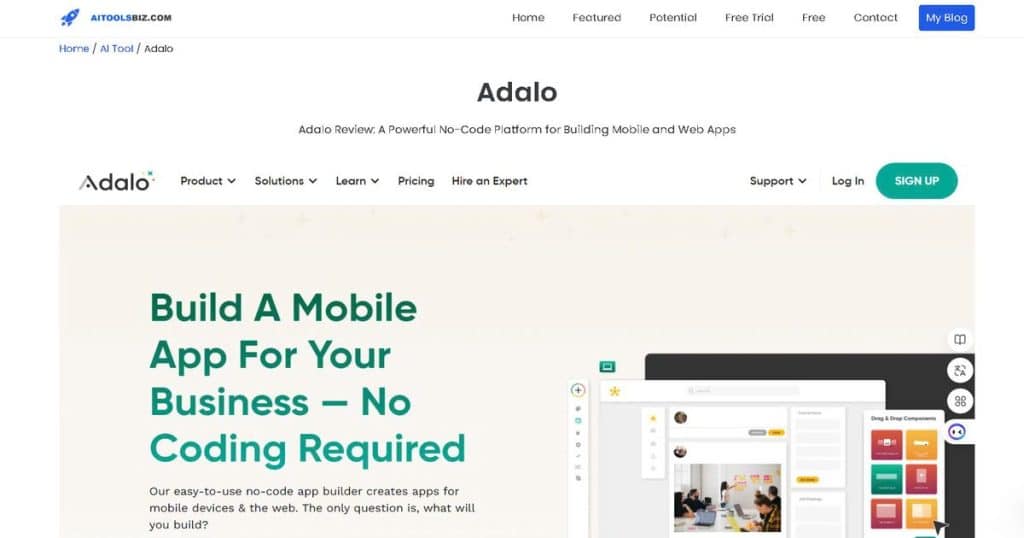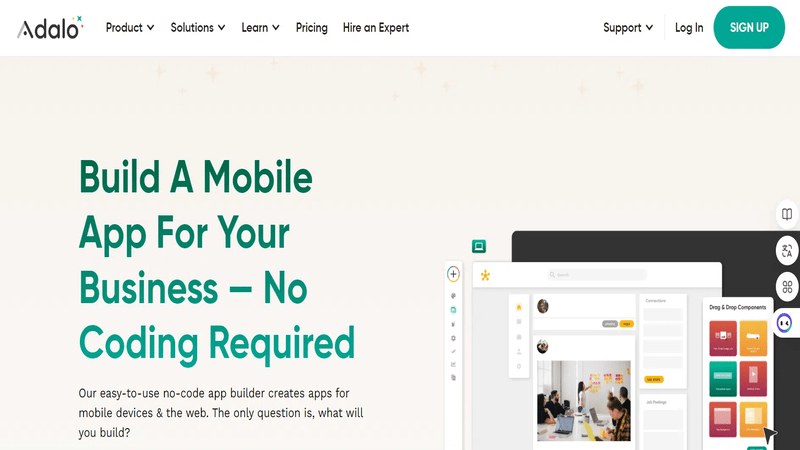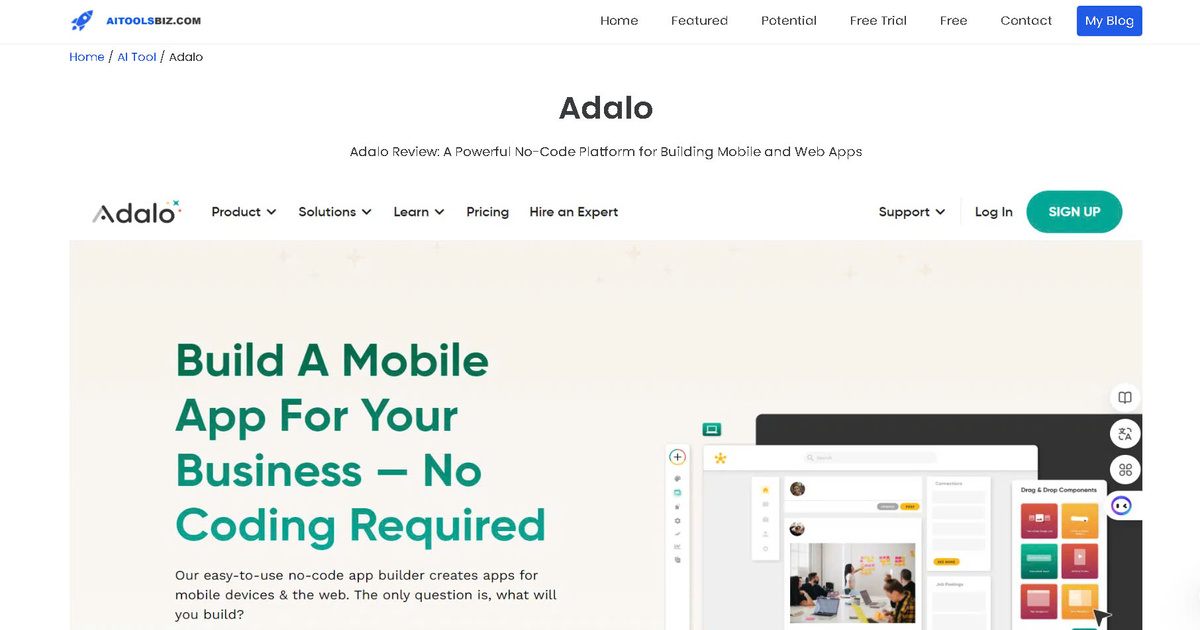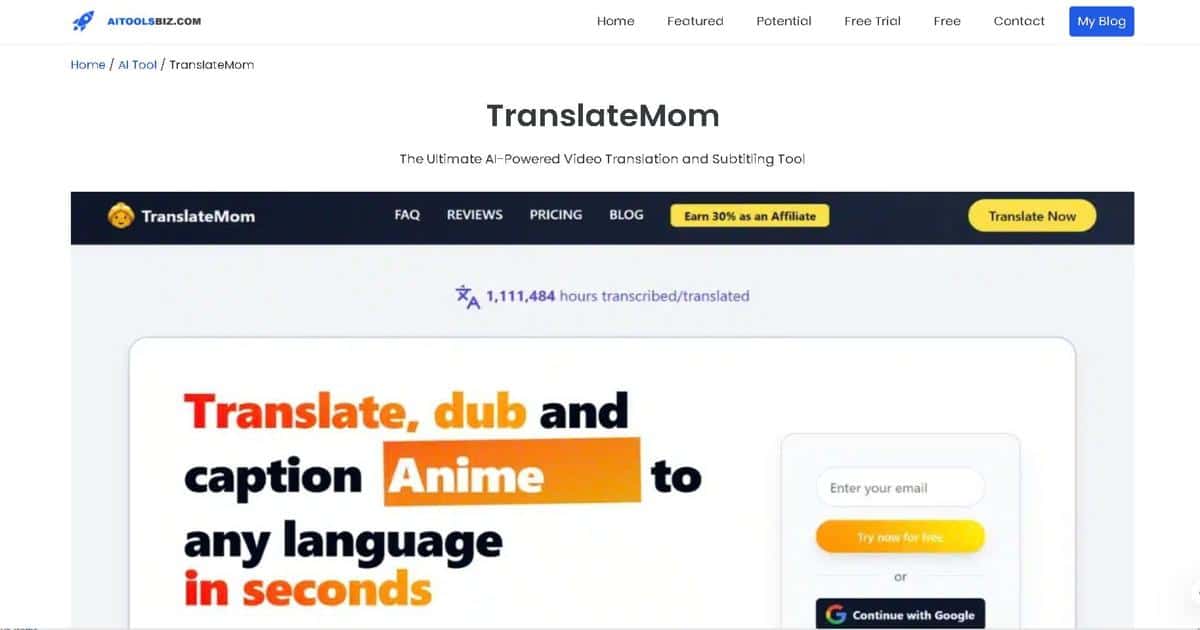Discover how Adalo’s artificial intelligence-driven features are transforming app development. Look at how it influences programming and business efficiency in this comprehensive study.
Adalo’s Quiet Revolution in App Development: Overview
In a digital environment dominated by rapid innovation and constant iteration, speed is occasionally the make-or-break factor in software development. Still, many tiny businesses and independent developers struggle to bring their app ideas to life. Enter Adalo, a no-code development tool quietly altering the way apps are built and launched.
By adding artificial intelligence into its toolset, Adalo is not only simplifying development but also smartening it. Adalo’s artificial intelligence features will be thoroughly discussed in this paper along with their implications for the programming community and their role in creating new opportunities for business development.
For those who want an app—not in months but in days, Adalo is quickly becoming the preferred choice. Let’s look at the reasons behind this.

What exactly is Adalo? No-Code App Development’s Foundation
If we want to appreciate what artificial intelligence provides, first understanding what Adalo is at its foundation is absolutely vital.
Adalo is a visual app builder allowing anyone create web and mobile apps without programming.
Adalo, named for Ada Lovelace, usually regarded as the first computer programmer, honours conventional programming while providing a future-looking solution for non-coders.
Users employ drag-and-drop components, logical flows, and database connectors rather than coding. Adalo has been popular among business owners, startups, and creative people without a technical experience but with great ideas as this democratisation of app development.
More Than Just a Buzzword, AI in Adalo
Though commonly used as a marketing buzzword, “AI” in Adalo is real, practical, and user-focused. The technology gives smart assistance that directly affects output rather than merely promising automation.
Clever Layout and Logic Suggestions
Adalo’s smart layout recommendations are among the first advantages consumers see. Adalo can recommend best screen designs and user interface patterns depending on the goal and components of your project. It learns from the framework of successful applications developed on the platform and uses that knowledge to yours.
For example, Adalo’s AI may recommend a Kanban design or provide templates with user authentication and calendar connections pre-configured if you’re developing a business-oriented task organiser.
Especially for people without a programming background, this not only helps but also reduces choice fatigue and avoids typical UI/UX problems.
Automating Regular Development Activities
Adalo’s artificial intelligence also manages logic automation behind the scenes. The system provides predicted recommendations for logical flows whether you are automating push notifications or establishing data filtering policies. This replaces conditional programming syntax with straightforward, visual clues, therefore eliminating the necessity for conditional programming terminology.
Users may concentrate on improving their fundamental product offers instead of spending hours painstakingly debugging processes—a major victory for lean business teams.

Performance Optimisation and Real-Time Debugging
Bugs and performance issues are the worst things to delay an app launch. Traditionally, correcting problems calls for a good understanding of programming principles. Adalo’s artificial intelligence capabilities, on the other hand, avoid this bottleneck by means of smart diagnostics.
Forecasting Error Alerts
Adalo notifies possible logical mistakes in real time as you construct. Perhaps a data field doesn’t map correctly or maybe you’ve forgotten to connect a button to a page. Adalo notifies you right away with recommendations for correcting it rather than letting the app fail during testing.
Performance Analysis Depending on App Behaviour
A mobile app can be made or broken by speed and performance. Adalo’s backend artificial intelligence provides optimisation recommendations by evaluating your app’s loading speeds, usage patterns, and data structure; these recommendations could otherwise call for a technical audit. This lets company owners keep a good user experience without employing a developer.
Adalo’s Impact on Non-Programmers’ Programming
Programming as traditionally pictured consists of line of code, intricate logic trees, and terminal window error messages. Though it still exists (and always will in some form), Adalo is providing a strong substitute for people lacking that ability.
From Code-Intensive to Concept-Heavy
AI takes care of tedious, technical parts of app creation, hence allowing users to concentrate on concepts, user experience, and business logic. “How do I create this?” to “What does the user need?” changes the emphasis. This is a significant change that restores power to creative thinkers and company entrepreneurs.
The Bridge to Learning Actual Programming
Ironically, Adalo might be a door to conventional programming by abstracting away complexity. Many users begin on Adalo and, once comfortable, explore further into code to increase their app’s features using custom actions or APIs. In this regard, Adalo is not replacing programmers; rather, it is generating more of them.

Case Study: An Adalo AI Built Business App
To show Adalo’s possibilities, let us consider a practical case.
UrbanTasks: A remote workgroup task management application.
The founder, a project manager without technical knowledge, sought to create a mobile app for remote workflow organisation and chat integration. Hiring a development team would have set them back more than $15,000, much outside their original budget.
Her answer: In less than three weeks, she built a completely working mobile app using Adalo. Adalo’s AI-driven UI recommendations enabled her to create automated workflow triggers and logical task boards. User logins, push notifications, and even Slack integration were all set up without writing a single line of code.
UrbanTasks presently has more than 300 active users; its founder has started marketing it to corporate customers. None of this would have been feasible without programming knowledge—mostly because of Adalo’s strength and simplicity.
Adalo’s AI Ecosystem’s Business Advantages
Often, when we discuss AI in software, we emphasise engineering efficiency. But especially in the corporate sector, the ripple effects of AI-driven platforms like Adalo are quite clear.
Shortened Time-to-Market
Whoever starts first usually wins in the hypercompetitive environment of today. User comments indicate Adalo cuts app development time by as much as 80%. Features that would take weeks of development may now be implemented in hours—allowing companies to test, iterate, and scale fast.
Cost Effectiveness for SMEs and Startups
Employing programmers is not inexpensive. Adalo offers the means to create completely functional goods for a fraction of the expense. For startups running on tight resources or small enterprises investigating digital transformation without strong IT teams, this is particularly crucial.
Growth potential By use of simplicity
A basic MVP on Adalo grows easily. Users may increase the functionality of their app as their company expands by means of connections with Zapier, Make, and even direct API calls. As complexity rises, the AI helps preserve usability and performance.
Realistic Expectations and Constraints
No platform is ideal; Adalo is not an exception. Although artificial intelligence eliminates many obstacles, complicated software features like deep third-party connections, sophisticated database relationships, or unique payment logic could still need developer involvement.
Furthermore, the performance of extremely large applications—thousands of users or data-heavy operations—can sometimes lag behind that of conventional codebases. Unless properly optimised, Adalo is best seen in such situations as a prototyping or MVP tool.
Adalo more than fulfils its promise, nevertheless, for most small business teams and lone entrepreneurs.
Final thoughts: Will Adalo shape future app development?
Adalo is not attempting to supplant programmers. It’s not assuming that artificial intelligence can create billion-user systems by itself. But what it does—and does very well—is make app development accessible, efficient, and even fun for small business teams and non-coders.
Adalo lets users concentrate less on code and more on what really counts: issue solving with AI-driven recommendations, real-time debugging, and smooth integrations.
Adalo provides a bridge between creativity and execution in a world where every business is becoming tech. And that could be the strongest programming tool of all.







